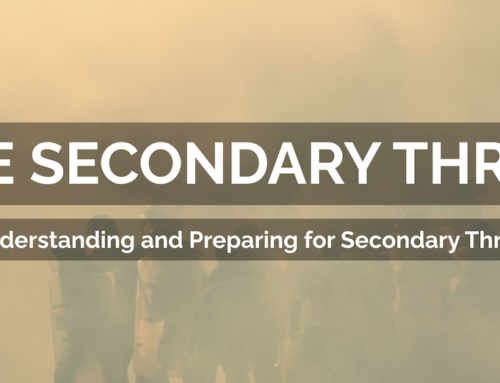Understanding the Link Between Lack of Coping Skills and Violence
In the realm of psychology and social sciences, the intricate relationship between coping skills and violent behavior is a subject of profound importance. Coping skills, defined as the strategies individuals employ to manage stressors and navigate challenging circumstances, play a pivotal role in determining how individuals respond to adversity. However, when coping mechanisms are deficient or lacking altogether, the risk of resorting to violence as a means of coping with distress significantly increases.
At its core, the absence of adequate coping skills leaves individuals vulnerable to the overwhelming impact of stressors. Without healthy coping mechanisms, individuals may experience feelings of helplessness, frustration, and emotional turmoil when faced with challenging situations. This sense of distress can serve as a catalyst for aggressive behavior as individuals seek to regain a sense of control or assert power over their circumstances.
The escalation from a lack of coping skills to violent behavior is a multifaceted process influenced by various factors. Childhood trauma or adverse experiences, for example, can impair the development of coping skills early in life, leaving individuals ill-equipped to manage stressors as they transition into adulthood. Additionally, mental health disorders, substance abuse, and social isolation can further hinder the acquisition and utilization of effective coping mechanisms, exacerbating the risk of violent behavior.
Moreover, the social environment plays a significant role in shaping coping skills and propensity for violence. Socioeconomic factors such as poverty, discrimination, and limited access to resources can amplify stress levels and diminish opportunities for developing healthy coping strategies. Negative social influences, including exposure to violence or dysfunctional family dynamics, can normalize aggressive behavior and perpetuate cycles of violence within communities.
Breaking this cycle requires a multifaceted approach that addresses individual and systemic factors. Interventions focused on teaching and reinforcing coping skills can empower individuals to manage stressors constructively and reduce the likelihood of resorting to violence. Cultivating supportive environments, promoting resilience, and addressing systemic barriers to coping skill development are essential to creating safer and more resilient environments.
Understanding the link between lack of coping skills and violence underscores the critical importance of early intervention, trauma-informed care, and systemic support. By equipping individuals with the tools they need to navigate life’s challenges safely and effectively, we can work towards building a society where violence is no longer seen as a default response to adversity.
Identifying Individuals Lacking Coping Skills and at Risk of Violence: An Overview of the PAAD Guide
In today’s complex and interconnected world, recognizing the warning signs of individuals lacking coping skills and on the pathway to violence is crucial for fostering safer environments and preventing tragedies. While it may not always be easy to discern, understanding the behavioral and psychological indicators can empower individuals to intervene early and offer support to those in need. Here, we present a comprehensive guide on how to identify individuals who may be struggling with coping skills and at risk of engaging in violent behavior.
Observable Behavioral Patterns
Social Withdrawal: Individuals lacking coping skills may exhibit tendencies to isolate themselves from others, avoid social interactions, and withdraw from previously enjoyed activities.
Expression of Anger: Heightened levels of irritability, aggression, or frequent outbursts of anger may signify underlying distress and an inability to manage emotions effectively.
Impulsive Reactions: Acting impulsively without considering the consequences, particularly in response to stressors or perceived threats, can indicate a lack of coping skills and poor emotional regulation.
Emotional Distress and Dysfunction
Difficulty Managing Stress: Individuals struggling with coping skills may appear overwhelmed by even minor stressors, expressing feelings of helplessness or hopelessness in managing their circumstances.
Persistent Anxiety or Depression: Chronic feelings of anxiety, depression, or despair may indicate an underlying inability to cope with life’s challenges, potentially escalating to harmful coping mechanisms or violent behavior.
Maladaptive Coping Strategies
Substance Abuse: Escalating substance use, including alcohol, drugs, or prescription medications, may serve as a maladaptive coping mechanism to alleviate emotional distress or numb painful feelings.
Self-Harm or Suicidal Ideation: Engaging in self-destructive behaviors, such as self-harm or expressing thoughts of suicide, can be indicative of an individual’s struggle to cope with overwhelming emotions or circumstances.
Communication and Interpersonal Dynamics
Difficulty Expressing Needs: Individuals lacking coping skills may struggle to articulate their feelings or communicate their needs effectively, leading to frustration or interpersonal conflicts.
Poor Conflict Resolution Skills: Inability to navigate conflicts or disagreements constructively, resorting instead to aggression or avoidance, may signal underlying deficiencies in coping and communication skills.
History of Trauma or Adverse Experiences
Past Traumatic Events: Individuals with a history of trauma or adverse childhood experiences may be particularly vulnerable to coping difficulties and subsequent involvement in violent behavior as a maladaptive response to unresolved trauma.
Changes in Behavior or Functioning
Significant Changes: Abrupt changes in behavior, personality, or functioning, such as deterioration in academic or occupational performance, withdrawal from social circles, or erratic mood swings, warrant further investigation and support.
The PAAD Violence Training Program stands at the forefront of prevention and response efforts, equipping participants with the essential skills to identify individuals on the path to violence in its early stages. Through comprehensive instruction, we empower advanced trained individuals to assess behavioral indicators, enabling informed decisions on the most effective mitigation strategies utilizing established resources. Moreover, our program encompasses guidance on managing the ongoing needs of individuals lacking coping skills, ensuring holistic support and intervention. Committed to readiness, we also provide thorough training on post-incident responses to active violence, fostering preparedness and resilience in the face of adversity.
About Bill Peeler
Bill Peeler, the driving force behind Peeler Group International, reflects on a career nearing four decades, committed to protecting individuals and institutions worldwide.
While recognized as a stalwart in security, he attributes his success to the trust and expertise bestowed upon him by countless clients. With a steadfast dedication to excellence, Bill guides the helm, championing investigative endeavors, delivering exceptional protection services, and sharing invaluable insights through training initiatives.
Preferring to lead by example, his influence extends beyond borders, fostering safety and security amidst an ever-changing landscape.






